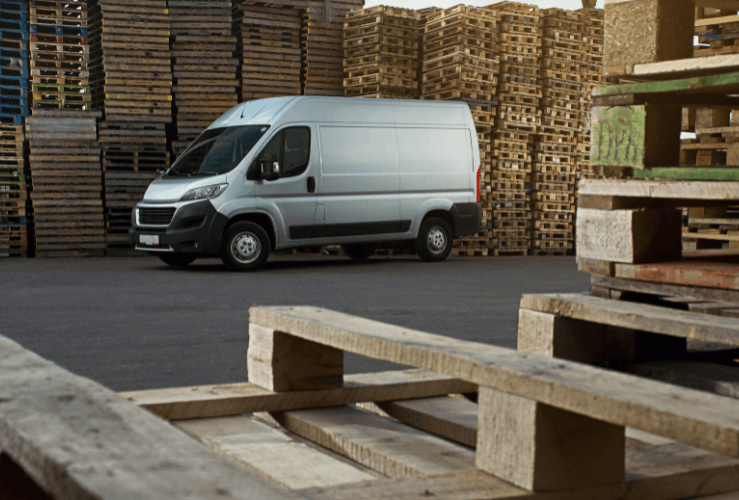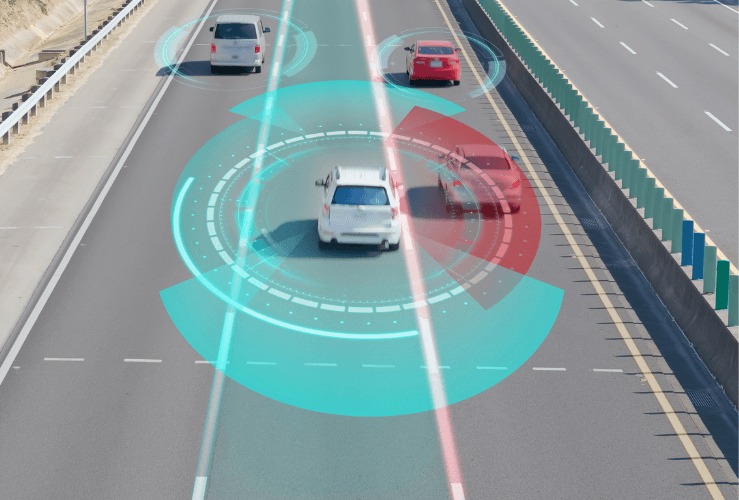For many UK companies, their fleet is at the core of their service. Without reliable, economical vehicles, delivery firms, energy companies, breakdown recovery providers, emergency services - and many others - would not be able to do their job effectively and in a cost effective way.
The chosen business vehicle(s) must also look the part - helping to maintain the brand image.
With these issues in mind, selecting a particular model - or series of models - for your operation demands some research.
In some cases, the obvious choice may not be the most suitable - especially when you take the long-term view, encompassing things like maintenance and resale value.
To help you steer a course through this challenging topic, we've put together some useful tips for choosing the right vehicle(s) for your fleet.

Think about what the vehicle will be used for
This sounds obvious, but you need to ensure your procured fleet vehicles can handle the tasks at hand.
A large off-roader won't be economical if your business undertakes regular long distance trips on the motorway. Equally, a compact van won't be a good choice if you need to go off-road for your work. And a larger van may not be ideal if you work in rural areas with narrow roads.
You'll also need to think about range. While newer EVs offer much-improved range, they still may not be suitable for companies that need to make long distance trips; if an average driver does 30,000 miles per annum, for instance, a diesel or petrol unit may be preferable to an all-electric.
Work out both long- and short-term costs
A host of costs are associated with running vehicles - not just the initial purchase price.
Think about the cost of VED, funding, leasing, fuel, and maintenance.
You should also look at resale values. As well as keeping some value for your business in the long term, a model that has good residual values suggests it is reliable.
Getting a top-down view of all costs will help you whittle down that shortlist - and probably quite fast.
Decide on a set of standards
Brand reputation is important - and choosing the right vehicle can help you maintain it right across the fleet.
Set about deciding on a series of standards that help make vehicle procurement easy, supporting your brand, while ensuring your employees can do their job well and in safety.
And if you select a particular model or marque, it will be easier to undertake maintenance and training in the long term.
You may also be able to buy parts or accessories in bulk - items that can be used across the fleet (e.g., shelving, hooks, and drawers). This will make maintenance and upgrading more straightforward.

Keep an eye on safety
Accidents are never good news for companies or their employees. Insurance premiums and increased downtime are some of the costly results.
Look for vehicles with high safety standards and associated technology to minimise the risk of accidents.
And of course, you owe it to your staff to ensure they can operate in the safest possible environment.
Your return-on-investment may well materialise quicker with optimum accident management.
Consider maintenance and repairs
Look at a vehicle's ongoing service requirements, as well as part and labour. Use forums, consumer publications, and YouTube reviews to make an informed decision.
It's also important to look at warranty cover - and how far it will help mitigate or reduce repair costs.
Harness fleet management software for future purchases
Looking to the future, if your current vehicles are integrated with fleet management software, you'll have valuable data with which to make future procurement decisions.
Include employees in the procurement process
Your staff will be able to provide invaluable information on what will make a reliable, useful, safe fleet vehicle.

Fleet procurement cheat sheet
Here's an at-a-glance list of factors to measure against your commercial needs:
- Vehicle size (can it handle the roads it will use?)
- Vehicle capacity (can it carry the items needed on a daily basis?)
- Range (start-stop urban driving, or long-distance trips?)
- Purchase cost
- Warranty options
- Repair costs
- Maintenance costs
- Leasing and funding costs
- Insurance costs
- VED costs
- Overall reliability
- Residual value
- Impact on brand image
- Safety standards/equipment (does it have Advanced Driver Assistance Systems - ADAS?)
- Driver and passenger comfort
Looking for business breakdown cover?
At Start Rescue, we offer comprehensive business breakdown cover to keep your business vehicles on the road, whether you have a single van or a large commercial fleet. Enjoy reliable protection for cars, motorcycles, vans, and more, ensuring your business stays productive.



